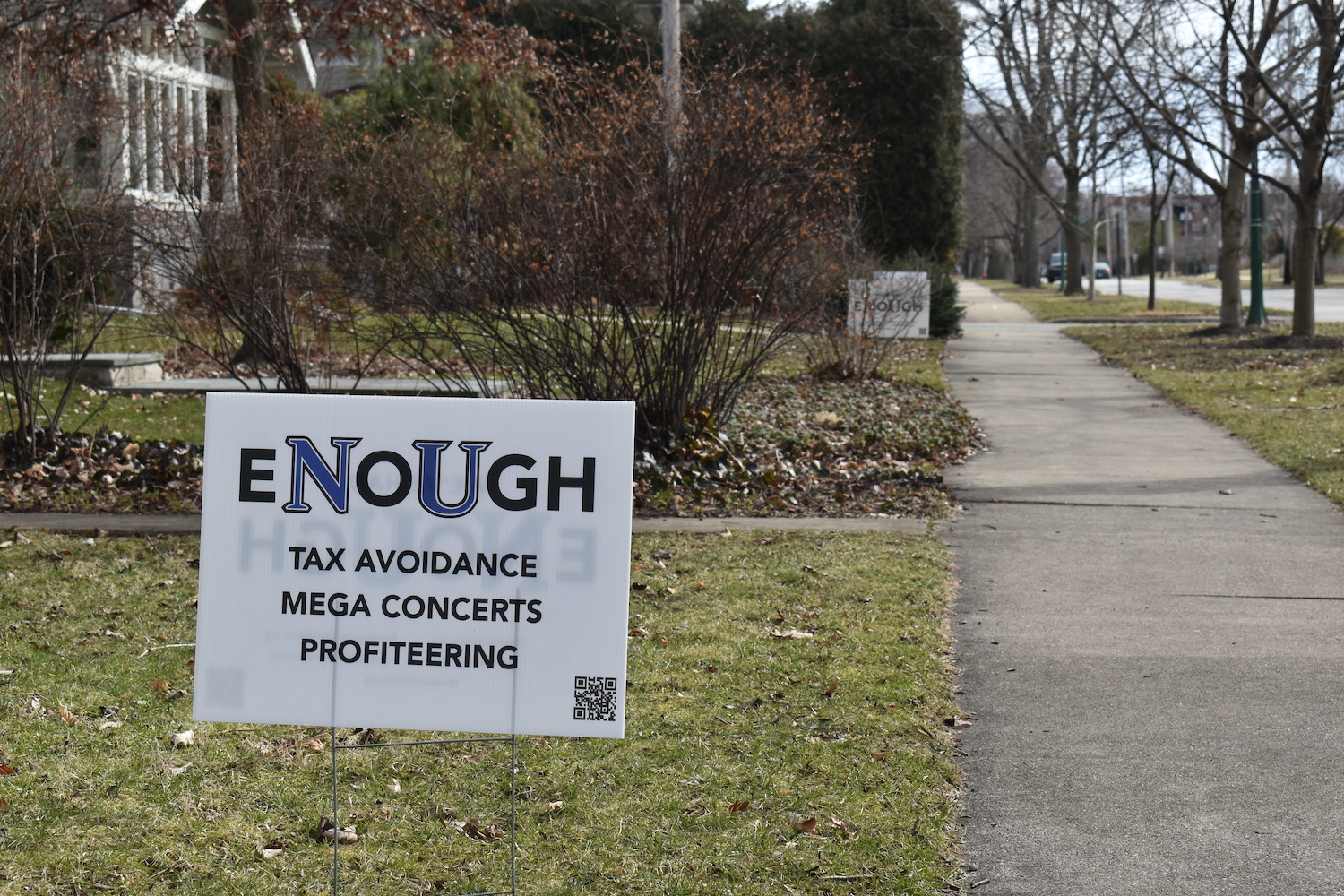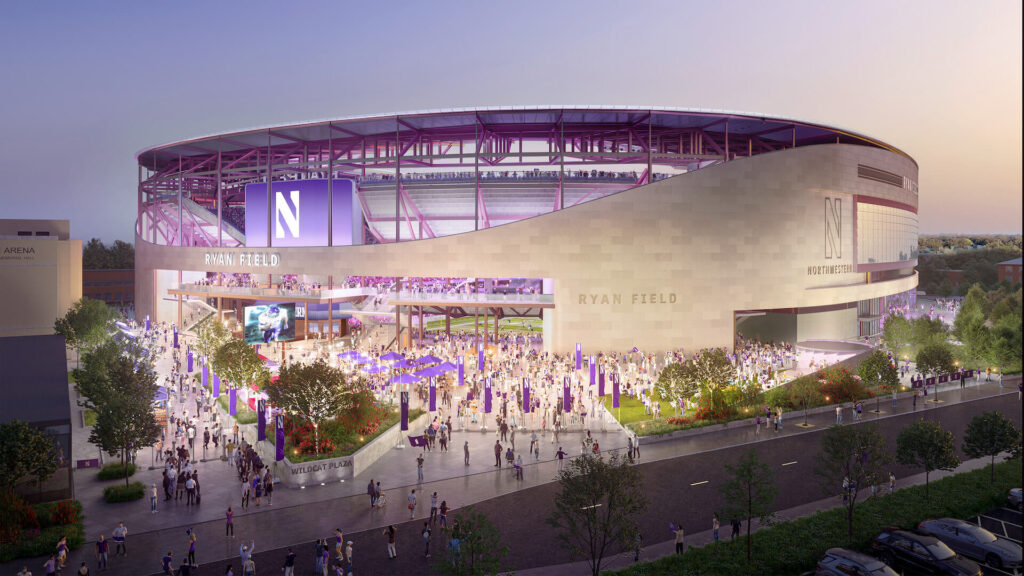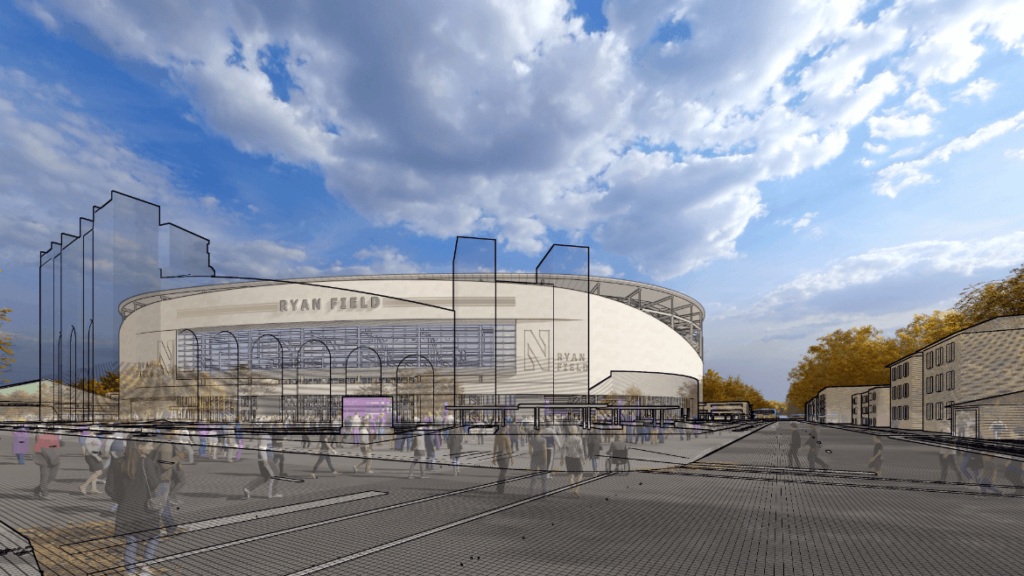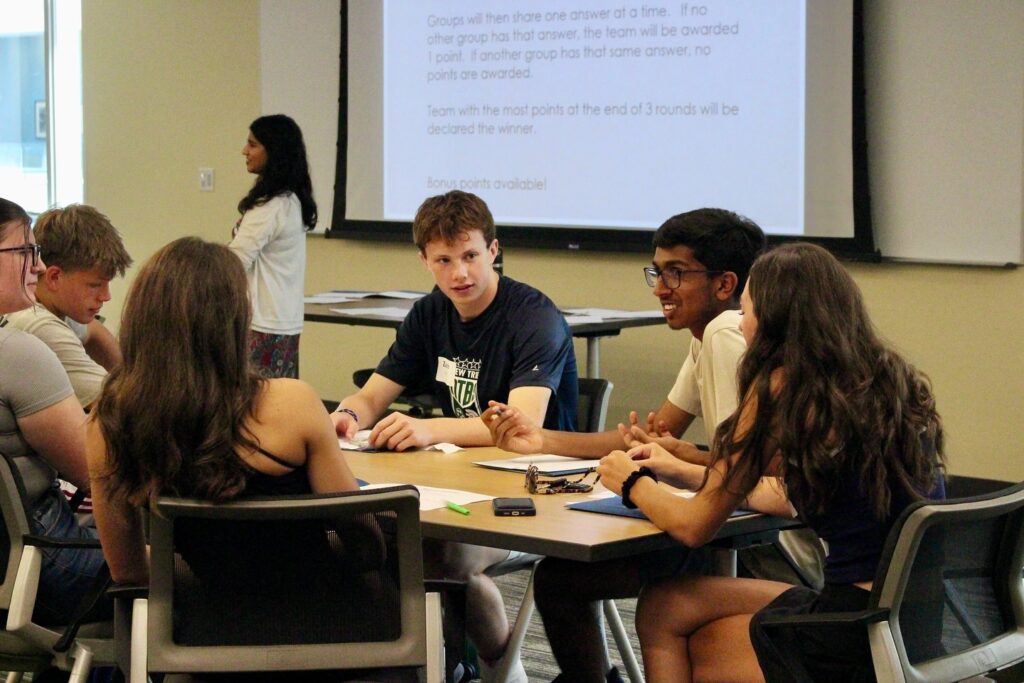
Wilmette’s role in the fight against Northwestern’s Ryan Field rebuild
Ted Marshall knew what he was getting into — heck, he even welcomed it — when he moved two blocks from a college football stadium in 1984.
But he never pictured this.
Nearly 40 years later, a proposed overhaul of Northwestern University’s Ryan Field would make football games just one of a variety of events held at the venue.
“It’s sort of like a kick in the pants,” said Marshall, who lives on the Wilmette side of Isabella Street. “No one who lives where we live would have ever suspected Northwestern would create a Wrigleyville-like environment. It comes as a real shock and a major disappointment.”
Marshall is one of dozens of Wilmette residents who have contacted Village officials to plead for help in contesting the Ryan Field plan, which was announced in September 2022.

Northwestern’s $800 million proposal calls for a modernization of the stadium and its grounds, while rebuilding within the same footprint as the current facility in the hopes of opening prior to the 2026 school year.
The stadium capacity would be cut from 47,000 to 35,000 and more communal areas would be created around the stadium’s perimeter, according to the project’s website. NU officials want the venue to host multiple revenue-generating concerts each year, as well as student-focused events like “winter festivals, holiday celebrations, student movie nights, intramural sports championships.”
According to the FAQ section of the site, Northwestern is requesting to host concerts because the new facility “cannot be financially viable on just seven football games.” The site also calls the rebuild a “once-in-a-century opportunity” that creates a “world-class” home for the university’s football team and the community.
“I have no doubt that the privately funded stadium will be a gamechanger for our football program, athletics department and the community,” NU Athletic Director Derrick Gragg said in a statement at the time.
The university commissioned an outside research firm, Impact Research, to conduct a community poll, which in January reportedly found that 56 percent of Evanston residents support the plan.
But the proposal has also drawn passionate opposition. A group of neighbors, including ones from Wilmette, formed a nonprofit called the Most Livable City Association that calls the project “a flawed new vision” and in its petition, criticizes Northwestern’s financial motives and major events’ potential impact on the community.
Wilmette Village Manager Mike Braiman said more than 50 residents have contacted the Village with concerns about the Ryan Field proposal.
“The concerns are consistent,” he said, “outdoor concerns and the impact they would have, like traffic and parking, alcohol sales, the impact of people walking through neighborhoods to their cars.”
Wilmette does not have any regulatory authority on the project, but Braiman said Village officials are advocating for their residents “to protect their interests and the quality of the neighborhood.”
Braiman and company have met with Evanston officials, including Mayor Daniel Biss, to relay resident concerns and to remain updated on the project’s progress.
To make the overhaul happen, Northwestern needs the City of Evanston to grant a zoning change to turn the football stadium, which hosts at most seven games per fall season, into a venue capable of generating a profit through an undefined number of events.
Northwestern is seeking three allowances from the City of Evanston: a text amendment to allow for outdoor events, another amendment to allow liquor sales during those events and a go-ahead to actually build the venue.

The requests are expected to first appear before the City Council in March. Meanwhile, the City of Evanston released two requests for proposals in relation to the Ryan Field project, seeking help to collect community feedback and project economic impact.
If the feedback request reaches Wilmette, Marshall thinks Evanston will find a group of disgruntled neighbors.
“If they persist in this, without any change in the proposal, they run the risk of becoming a bad neighbor,” he said. “I think that could be very harmful for the university.”
Marshall, like many of his neighbors, placed a Most Livable City sign in his yard opposing the Ryan Field plan; however, he isn’t bothered by Northwestern’s tax status and he supports a general renovation of Northwestern’s outdated football stadium. His primary concern is what he sees as a drastic switch in the university’s mission and purpose by transforming Ryan Field into an entertainment hub.
“It feels like a bait and switch,” Marshall said speaking of the event portion of the plan. “It raises a question of leadership at Northwestern University. What is the mission now? Why do they want to do this? What does it have to do with educating kids at an elite university? I definitely don’t understand what it does for the football team.”
The Record is a nonprofit, nonpartisan community newsroom that relies on reader support to fuel its independent local journalism.
Subscribe to The Record to fund responsible news coverage for your community.
Already a subscriber? You can make a tax-deductible donation at any time.

Joe Coughlin
Joe Coughlin is a co-founder and the editor in chief of The Record. He leads investigative reporting and reports on anything else needed. Joe has been recognized for his investigative reporting and sports reporting, feature writing and photojournalism. Follow Joe on Twitter @joec2319


